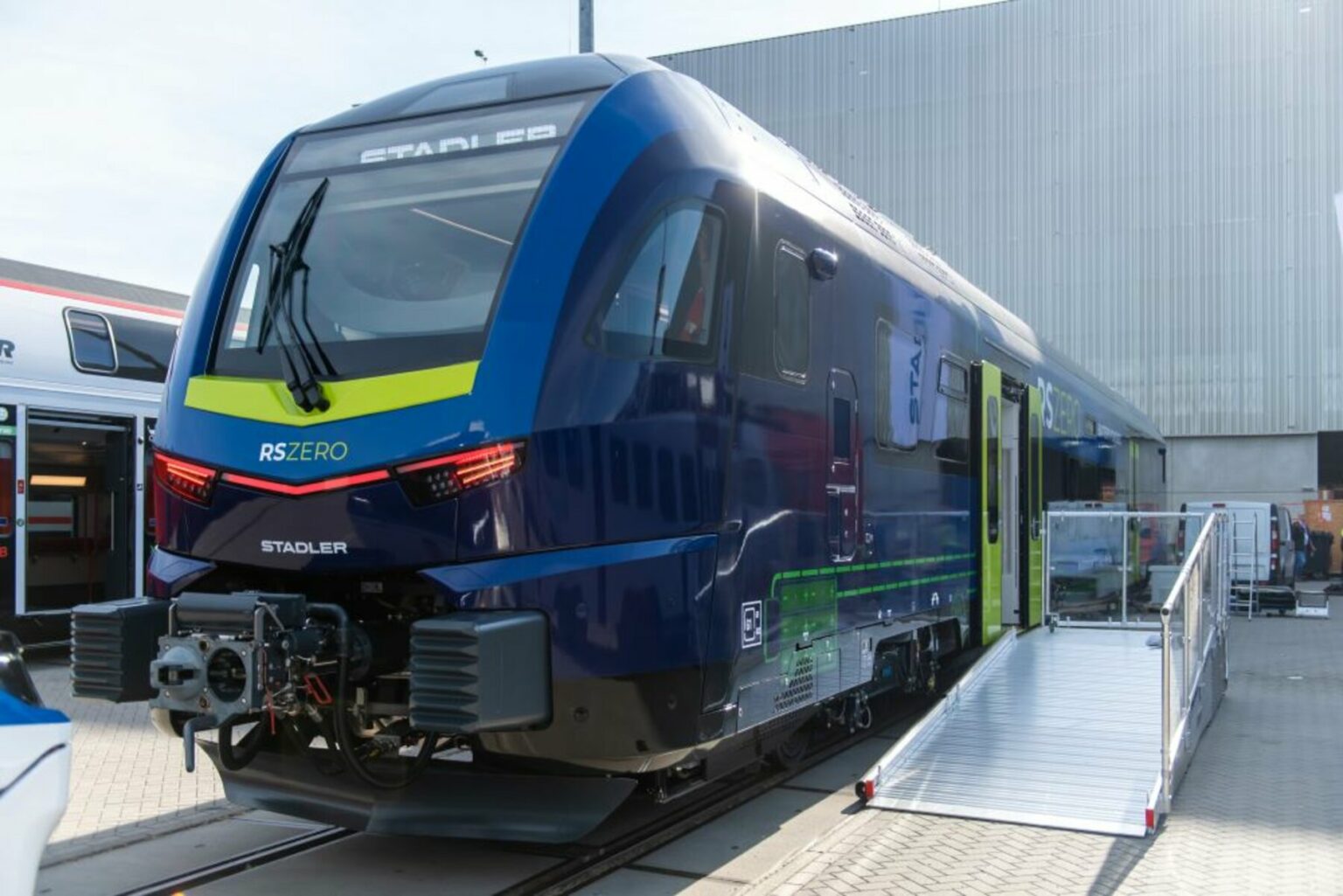In collaboration with the Thuringian Ministry of Infrastructure and Agriculture (TMIL) and Erfurter Bahn, Stadler signed a declaration of intent to test the hydrogen-powered RS ZERO prototype on catenary-free lines in Thuringia.
The signing took place at the InnoTrans trade fair in Berlin, marking an important milestone in the push for sustainable mobility.
Thuringia is committed to drastically reducing greenhouse gas emissions from local rail transport by mid-next decade. The region aims to phase out diesel-powered trains and replace them with more environmentally friendly alternatives, such as the RS ZERO. The hydrogen-powered RS ZERO, which produces zero local emissions, was developed for rail lines without overhead electrification, making it an ideal candidate to replace diesel trains. TMIL is backing the project, viewing it as a key part of its strategy to transition to nearly emission-free regional rail transport.
The RS ZERO prototype is designed with flexibility in mind. It can be powered either by hydrogen or a battery-electric system, offering adaptable, future-ready solutions for non-electrified rail lines. The vehicle’s lightweight design, coupled with an axle load under 18 tonnes, makes it ideal for branch lines with lower passenger demand. This combination of innovative drive technologies and lightweight construction allows for economically viable operations on less trafficked routes, which could enhance the region’s local rail services.
Testing the Prototype in Real-World Conditions
The pilot project, expected to launch in mid-2026, will see the RS ZERO deployed on select catenary-free lines in Thuringia. This trial aims to evaluate the vehicle’s performance under real-world conditions, both for passengers and railway operators. The trial will assess whether the RS ZERO meets operational, technical, and economic expectations. Depending on the rail line, operations will be managed by either Erfurter Bahn or the South Thuringian Railway.
